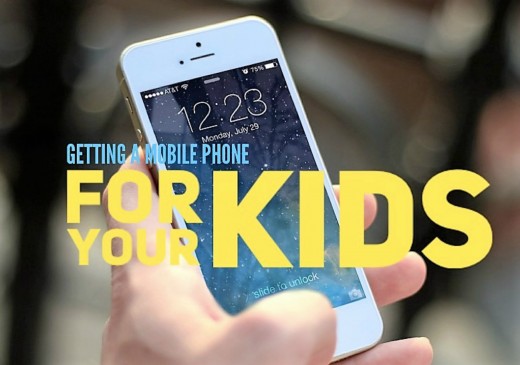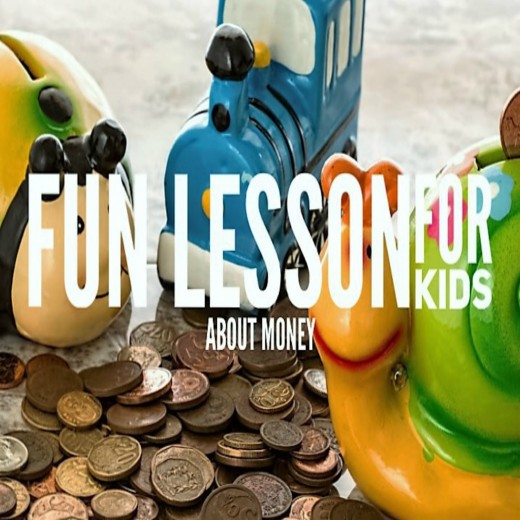Teaching Kids How To Manage Pocket Money
Financial Literacy In Early Childhood
These are some of the most formative years in your child’s lifetime when they take their first steps toward becoming independent as they start school and are expected to take responsibility for themselves and their belongings. It is also a time of intense and exhaustive learning but although teachers strive to educate students in the principles of literacy and numeracy creative pursuits sports and good citizenship there is still one important element of your kids education that is not getting covered in schools and if they are going to learn it they are going to have to learn it from your financial literacy. Just like teaching kids to read and write helping kids become financially literate takes effort consistency and above all the desire to help them succeed. One very important thing to remember is that no one expects you to be infallible when it comes to teaching your kids these skills and no one expects that your kids will be perfect either we all make mistakes we all get things wrong. It is how you react when you make a mistake and what you do to make things right that counts. Facing down is not a lesson the lesson is finding out what you can learn while you are down there to stop yourself from falling again. So you have to be willing to make mistakes because that is how we all learn. Plus it is daunting for a kid to grow up in a house with parents who are never wrong and who never make mistakes. One of the most important things you can teach your kids is that a mistake is just that a mistake. It is a time where we discover how not to get the result we want and learn more about what we need to do to become successful.

Money Fun For Younger Kids
Seeing is believing is the catch for kids of this age. In general children are still very concrete in their thinking and they probably are not going to be able to handle the abstract concept of creating a budget by writing amounts of money down on paper. They need something they can see and touch to make it real for them. Give them separate containers to store their money in according to what they want to do with it and this should make the concept of planning what they are going to do with their money much easier for them to understand.
- Stick to two or three containers to begin with and make it easier for them to divide their money up by giving it to them in small denominations.
- Once they have had a few saving feel free to let them add more containers and aim for goals that take longer to reach.
- Get into the habit of giving your kids their pocket money at night and have your child divide their pocket money between the containers to reinforce the lesson.
Money Advice For Your Kids
Ask your child how people get money and you will learn that it is not uncommon for kids to think that their parents just buy it. Once you understand a bit more about what your kids think about money becomes easier to understand why they think and say the things that they do and it soon becomes clear that you have got some exploring to do. If you ask your child where money comes from you are likely to hear the answers:
- From the machine in the wall
- From Moms or Dads wallet
- From the shops where Mom throws a card and they get given money for doing it
The way that you explain the concept of earning money is very for important to create the foundation of your kid’s work ethic and attitude toward employment. So before you start explaining this concept to your kids has at think about the beliefs you want them to have about money and work. As adults so much of our lives are dictated by the mighty dollar and we tend to forget that the idea of earning money is really exciting for kids. Although the time will come when you need to explain all of the intricacies of working with your kids, for now, it is sufficient to let them know that you go to work for so that you can earn enough money to pay for everything that your family needs. Do not go into specifics they do not have a full understanding of the value of money yet and it may just confuse them. Instead, explain it in terms they understand what you could buy after working for an hour a day. The way you approach this is going to be vitally important in the creation of one of your kid’s most important beliefs about money which are how to feel about earning it.

There is no right way of dealing with pocket money and no wrong way just different ways.

Discuss Money With Your Children
You may not actually love what you do for a living right now but it is important that you explain work in terms of its benefits rather than focusing on the negative and if you find that it is hard to get excited about any part of your job maybe it is time that you had a think about what you really want to get paid to do every day and see if you can make that your reality. After all, we spend roughly one-third of our levels working and if you are going to spend that much time doing something the trick to being happy about it is to find something you love and then figure out how to get someone to pay you for doing it. Once the kids get used to handing money it is time to teach them how much it is worth and the easiest way to do this is to speak their language. To ensure that you are getting the message across loud and clear ask your kids why they think you go to work.
- Explain why you go to work each day to your kids remember that this is a vital time as you will be creating their impression of work so explain it in terms of how enjoyable it is to be able to go to work to earn money to buy and have the things that the family needs and wants.
- Encourage your kids to engage in trading games at school with their friends. These are a great way to get them used to the concept that money is worth what you can trade it for. It helps them to begin to create the skills they need to ensure that they are getting value for money when they start trading in actual cash by making purchases.
- Start the gentle and fun lessons that will teach your kids how to get great value for money and keep reinforcing them whenever you can. Remember that a vital part of this lesson is talking to your kids about their successful and not so successful experiences and explaining that everything that happens is a result of the choices we make. Talk to your kids about how everyone has to make choices and that we all have to live with the results of the choices that we make. Explain to them that getting different results is as easy as making different choices.
Share Your Thoughts Here
For children to remain grounded parents need to put some responsibility on their shoulders

Helping Kids To Learn The Difference Between Essential And Lifestyle Expenses
Understanding the difference between essential expenses and lifestyle expenses are some of the most important tools your kids can have in their financial toolbox. Part of this is teaching them to start using the right language. This will help them to transition to the next level of budgeting more smoothly because they already are familiar with the terminology. The first thing you need to explain to your kids is what essential and necessity expenses actually are and once again keeping this simple will make it a lot easier. Knowing the difference between the two allows people to properly prioritize and allocate their resources and is vital for preventing people from living outside their means. Teaching kids how to differentiate between wants and needs is really a matter of revising our recurring theme talk to them about it in terms of what is important to them.
Gentle Fun Lesson For Kids About Money
Spending calculator is very similar to putting together during your family budget for the year your kids are going to need to work out roughly what expenses they are going to have. Add them together to calculate how much everything costs over the course of a year and then make this annual amount easier to manage by breaking the costs down to monthly or weekly installments. It is impossible to know about every little expense that they are going to have to meet in a year they need to get used to factoring in miscellaneous and unexpected costs as well as the ones they know are coming. It is one of the best ways to avoid experiencing a shortfall and needing to make the difference up from their pocket money or having to go without something they need. It is a good idea to put everything you expect your kids to pay for down to avoid any confusion just like you do with your family budget.
Sample Exercise Sheet
Item
| Estimated Cost
|
|---|---|
School bag
| $50
|
School shoes
| $85.00
|
School books
| $100.00
|
School uniforms
| $180.00
|
Pyjamas
| $60.00
|
Casual Clothes
| $200.00
|
Underwear
| $100.00
|
Socks
| $80.00
|
Toiletries
| $120.00
|
Haircuts
| $100.00
|
Medications
| $200.00
|
School Sports
| $65.00
|
Phone Credit
| $150.00
|

Getting A Mobile Phone For Your Kids
Mobiles are a great way for families who are on the go to keep in touch and provide both kids and parents with confidence and a feeling of security but they can also be a sponge just waiting to soak up your and your kids hard enormous earned money so it important to know exactly what you are getting.
- Decide what type of phone you want your kids to have and stick to you decision even if they disagree. Most kids are going to want the top of the range model that all their friends have but all kids need is a phone that can make and receive calls and text.
- We really think that anything else is a luxury that they can enjoy when they are paying their own bills. Make sure you completely understand the debt minefield that you and your kids will need to negotiate when they have a phone and make sure that they are aware of the pitfalls.
- Think long and hard about whether you are going to get them a prepaid or postpaid phone and then shop around for the best deal.
- Remember it is usually possible to have a postpaid plan where you provide your own handset so do not get conned into thinking that you need to pay for a new phone as part of a plan.
- Watch your kids habits and encourage them to be open with you about their phone activity if they are honest with you about what they are doing then you may just be able to prevent any potential problems before they get too out of hand .

Getting The Kids Into Action
Once kids reach the age of eight they are generally capable of dealing with more abstract concepts and creating a paper-based plan should become possible. Your kids will need to have the ability to store their money in one place and divide it up once they have decided how to allocate it. It still important that you make it this easy for them by giving them their pocket money in small denominations but most kids should be able to reconcile numbers on paper with cash in their money box by now. Kids of this age should also be able to cope with saving goals that will take a little longer to realize but bear in mind that a month is a long time for a child so start with helping them to set goals that are achievable within a few weeks and work up to bigger goals from there. Here is what to do.
- Get the kids to fill in the estimated amount and simply fill in a column at the start of the week and the actual column at the end of the week so they can see if there are any differences between the two.
- Your kids are probably going to need to make some adjustments to their money plan will balance. Get your kids to work out what they want to save for and make a note of these things in the week one column make sure you get them to stick to things they will be able to save up for fairly quickly so that they do not get discouraged.
- Have your kids write down their total income what is in their money box and the pocket money they think they will receive in the estimated amount section of the Week One column before they start working out their expenses. Kids will find this system easier if they have an idea of how much money they have to work with before they start deciding what they are going to do with it all.
- Help your kids to work out how much they are going to set aside for the things they are saving for and let them know that it is important that this amount is untouchable once it has been allocated for saving. While they may struggle with this concept at first it is an important lesson that begins to create the foundations for great budgeting habits later in life.
- The next thing to do is fill in the expenses section they should only note the things that they will have the cash to buy this section, not the things they are saving for. Help the kids to come up with an estimated amount of the things they want to buy you can do this by going through catalogs or by making guesses based on previous shopping experiences.
- Get them to add all of those estimates together and make a note of the total the estimated amount column in the total expenses section. Get them to work out what is left over once they deduct all of their estimated costs from their estimated income and make a note of this amount in the appropriate section.
It is vital that you do not let them steal money from the savings for this they need to learn the basic principle of living with the income even from this young age. When the time comes to complete a new money planner make sure the kid bring any savings and income totals over from the previous month so they can keep track of where they are up to.
Lessons For Kids About Money
Let your children surprise you and give them the opportunity to really stretch themselves in these exercises and do not hold them back. Saving money is a wonderful opportunity for them to build their confidence increase their skill base and really grow their financial maturity. You will be giving them the opportunity to make a very real contribution to their family right now. This is something that will have an enormous impact on their self-esteem and confidence as they watch the difference that their input makes. Keep working on it. You are about to take a huge step as a family and although there will be instant rewards for you to enjoy the real rewards come over the years as you will watch your family work together to achieve your goals and watch your kids achieve even more when they have a fame of their own.








